Results
-
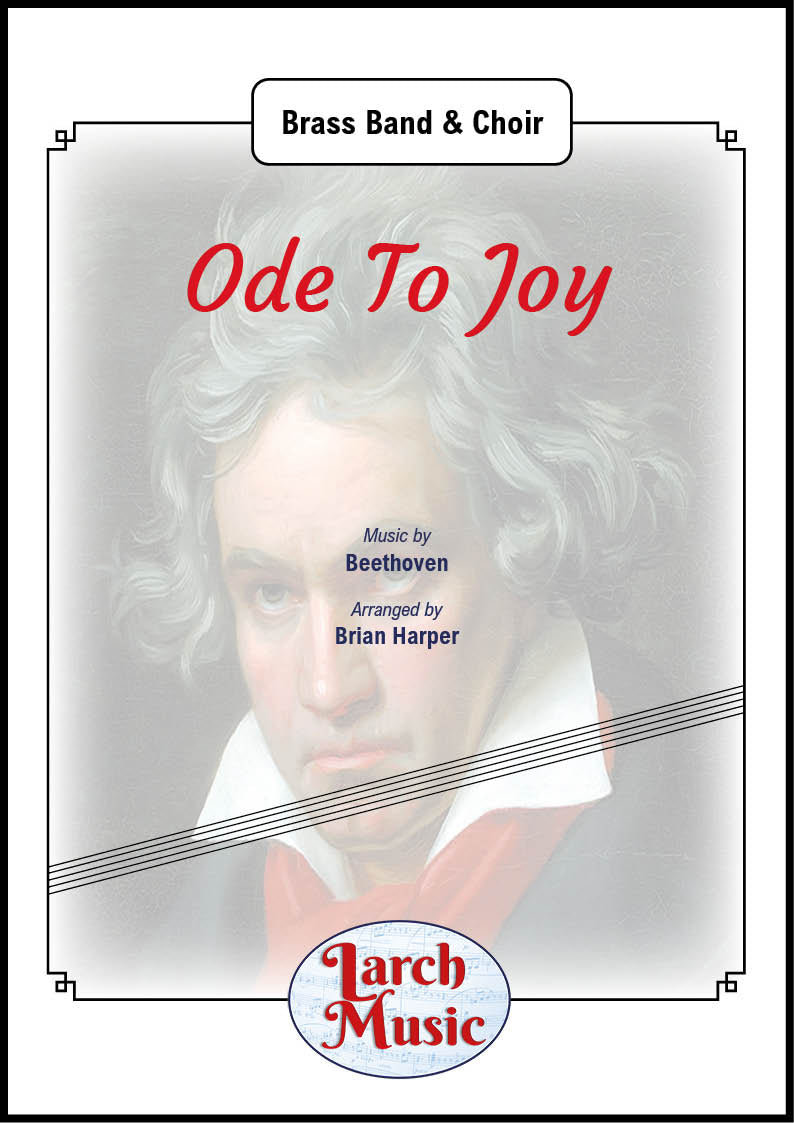 £30.00
£30.00Ode To Joy - Brass Band & Choir - LM906
COMPOSER: BeethovenARRANGER Brian HarperA great addition to the brass band repertoire from Brian HarperFeatures full band with Choir (Soloists as well!)One for your next choir and band concert
In Stock: Estimated dispatch 3-5 working days
-
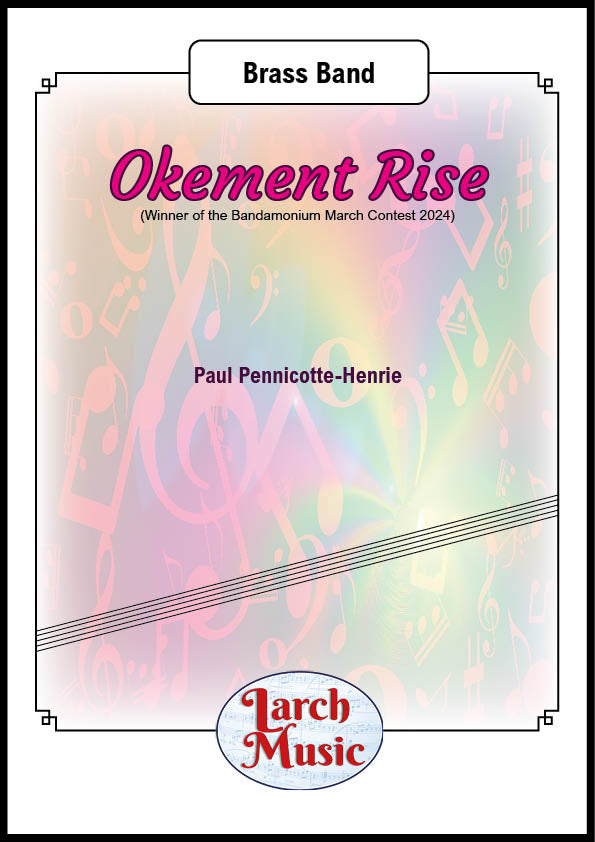 £25.00
£25.00Okement Rise (Concert March - Winner of the Bandamonium March Contest 2024) - Brass Band - LM489
COMPOSER: Paul Pennicotte-HenrieA great addition to the brass band repertoire from the pen of Paul Pennicotte-HenrieWinner of the Bandamonium March Contest 2024Bandamonium 2024Bandamonium is a Brass Banding festival with a difference.There are prizes to be won, but only by the bands immersing themselvesin the Bandamonium experience with the people's choiceaward being voted for by the public.The prerequisite for the free sign up to the event is that the band agrees to let their hair down and have fun.That might mean cracking out the fancy dress, playing the latest pop songs, song sheets for the audienceor just playing with a smile on their faces - but it creates a day with a difference to put the fun back intobrass banding and giving the bands almost as much entertainment as the audienceCentred around the small picturesque market town of Hatherleigh in West Devon bands travel around a number of locations (pubs) during the afternoon on transport provided by Bandamonium, before meeting up in Hatherleigh in the evening for a special unrehearsed massed bands performance which is truely magical.For Bandamonium 3 on 27th July 2024 there will be 18 bands from around the UKimmersing themselves in the Bandamonium experience, and in the evening the premier of theBandamonium March competition winner will be performed by the massed bands.This year the winneris Paul Pennicotte-Henrie with the amazing march 'Okement Rise'.We can't wait.For latest information please see www.bandamonium.co.uk
In Stock: Estimated dispatch 3-5 working days
-
 £25.00
£25.00On Parade - Brass Band Sheet Music Full Score & Parts - LM112 - Various - David Beal
COMPOSER: VariousARRANGER: David BealA collection of children's songs woven into a marchIncludes:One Finger One ThumbThe Animals Went In Two By TwoLM112 - ISMN : 9790570001125
In Stock: Estimated dispatch 3-5 working days
-
 £25.00
£25.00Os Justi - Brass Band Sheet Music Full Score & Parts - LM406
COMPOSER: Anton BrucknerARRANGER: John DavisA great addition to the brass band repertoire from John DavisOs justi('The mouth of the righteous'),WAB30, is a sacredmotetcomposed byAnton Brucknerin 1879.Os Justiis aGregorian chantused asgradualof theCommune Doctorum,and asintroitIand gradual IIof theCommune Confessoris non Pontificis.History
In Stock: Estimated dispatch 3-5 working days
-
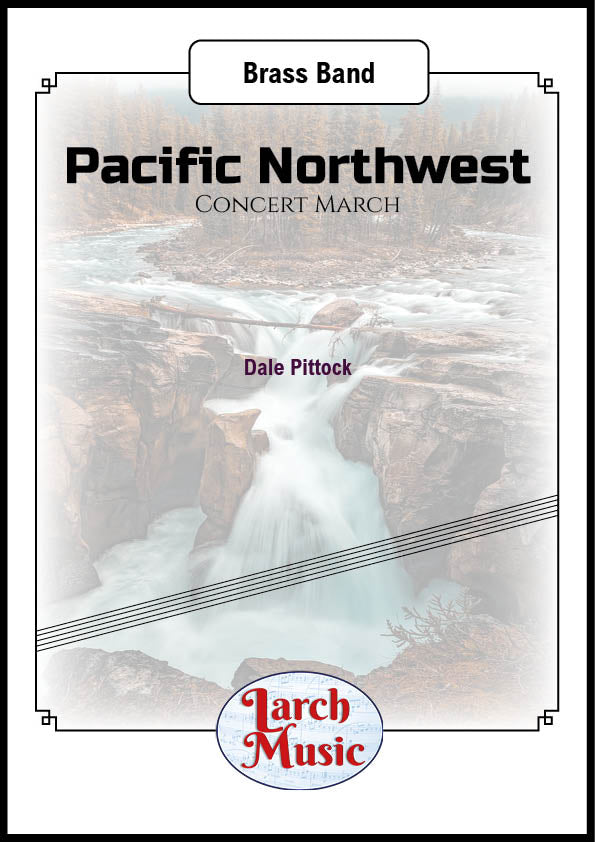 £30.00
£30.00Pacific Northwest (Concert March) - Brass Band - LM481
COMPOSER: Dale PittockA great new concert march to add to the repertoire.
In Stock: Estimated dispatch 3-5 working days
-
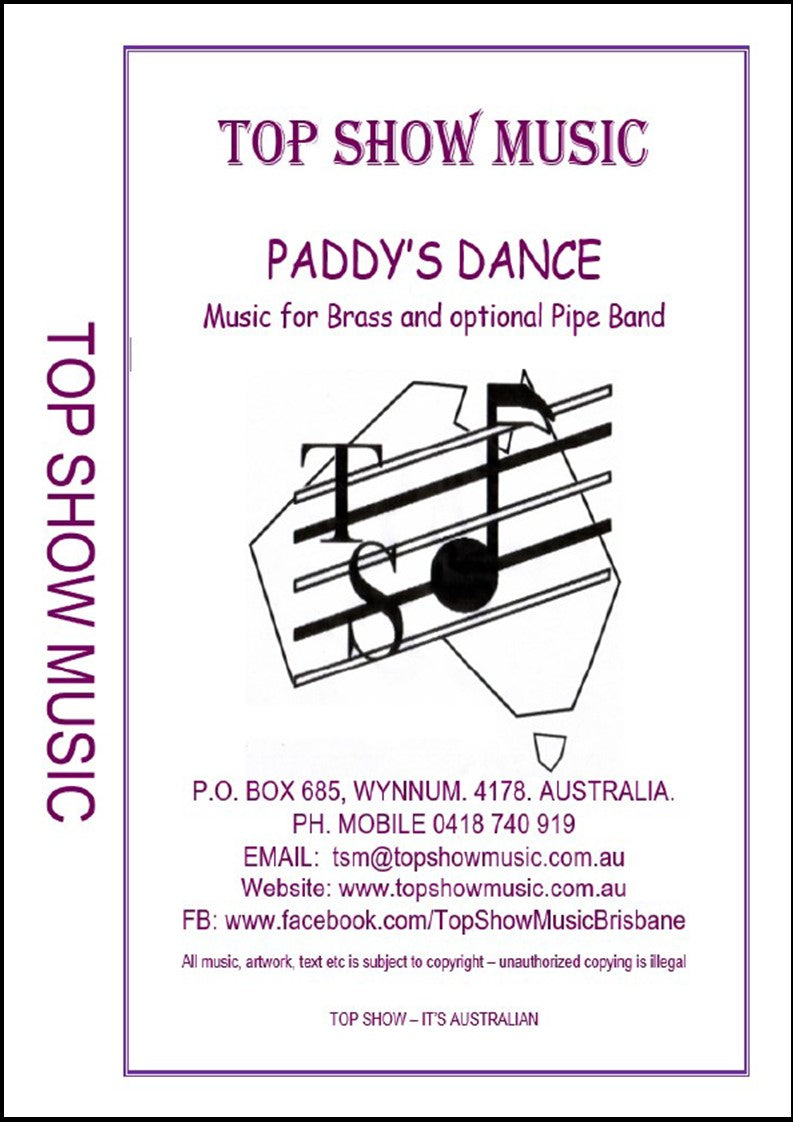 £30.00
£30.00Paddy's Dance - Brass Band - Strauss
COMPOSER: StraussARRANGER: David BealBased on the old Celtic Jig. Paddy's Dance open with percussion and a Xylophone feature.The original Jig has four themes but this version has two more themes added.An optional piper our full pipe band may be added if you desire (Pipe Band parts are included).
In Stock: Estimated dispatch 3-5 working days
-
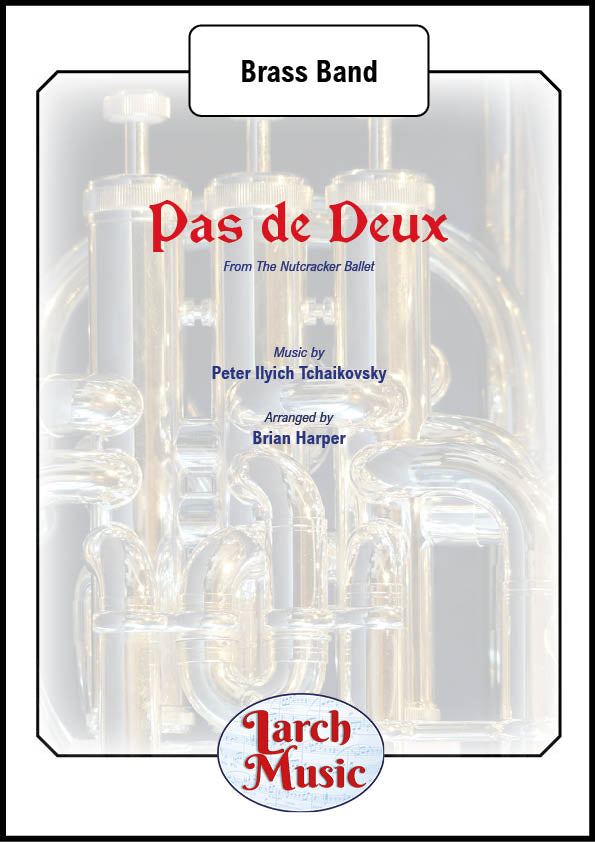 £25.00
£25.00Pas de Deux - Brass Band - LM944
COMPOSER: TchaikovskyARRANGER: Brian HarperNo. 5Pas de Deux for Two Merry-makers from Tchaikovsky's ballet "The Nutcracker"
In Stock: Estimated dispatch 3-5 working days
-
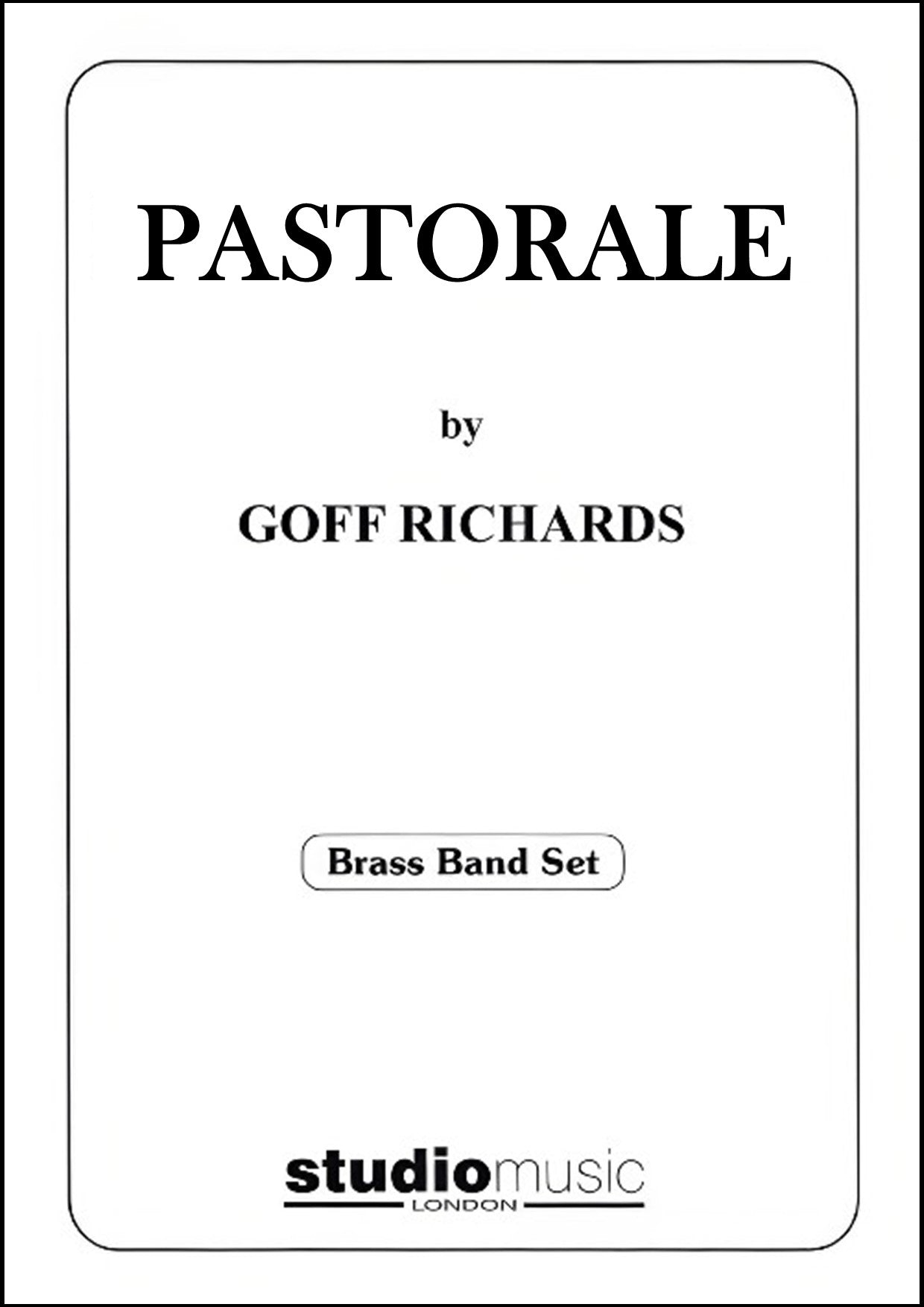 £37.95
£37.95Pastorale - Brass Band Sheet Music Score & Parts
COMPOSER : Goff Richards
In Stock: Estimated dispatch 3-5 working days
-
 £25.00
£25.00Pavane - Brass Band - CB012 - Faure - Lee Morris
COMPOSER: FaureARRANGER: Lee MorrisProbably one of the most famous Classical melodies to come from the pen of Gabriel Faure. This arrangement starts very much as in the original, before taking on a more modern turn into a swing band arrangement.
In Stock: Estimated dispatch 3-5 working days
-
 £30.00
£30.00Pentre Ifan - Brass Band - LM948
COMPOSER: Alex McGeePentre IfanPentre Ifan (literally "John's Village") is the name of an ancient manor in the community and parish of Nevern, Pembrokeshire, Wales.It is 11 miles (18 km) from Cardigan, Ceredigion, and 3 miles (4.8km) east ofNewport, Pembrokeshire.Pentre Ifan contains and gives its name to the largest and best preserved Neolithicdolmenin Wales.Suitable for Most Bands - Duration 6 mins (Approx.)
In Stock: Estimated dispatch 3-5 working days










